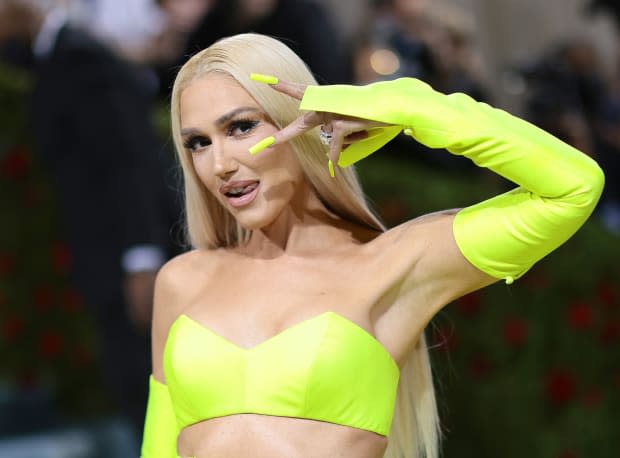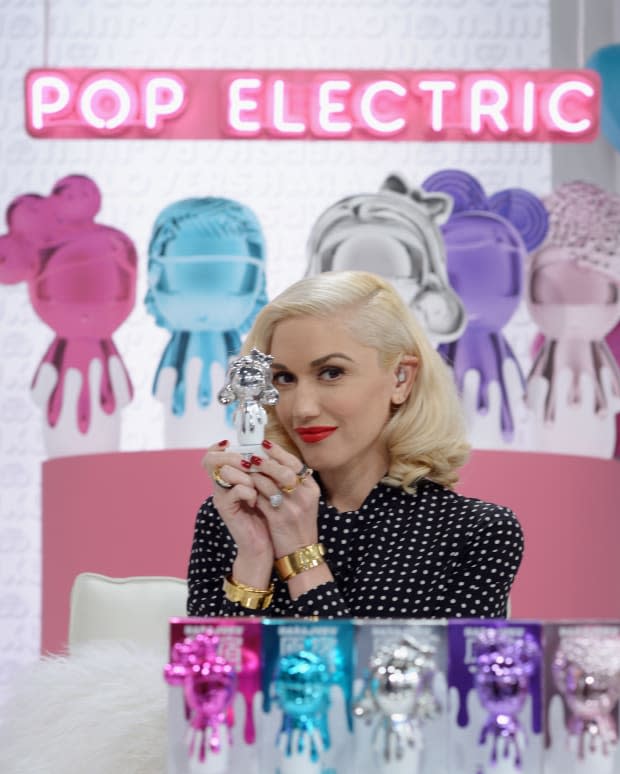Uh, Now What Did Gwen Stefani Tell Allure About Her Harajuku Era?
- Oops!Something went wrong.Please try again later.
"I said, 'My God, I'm Japanese and I didn't know it.'"

Photo: Dimitrios Kambouris/Getty Images for The Met Museum/Vogue
Gwen Stefani — singer, TV personality, beauty entrepreneur and noted cultural appropriator — seems to be a bit confused about her ethnicity.
This became clear in a recent interview with Allure's Senior Editor Jesa Marie Calaor, which began as an opportunity for Stefani to discuss her existing color cosmetics brand GXVE Beauty, but quickly devolved into a confusing string of comments from the star seeming to claim that she's Japanese.
Calaor, who's a first-generation Filipina American, brought up Stefani's past beauty ventures, like her successful five-piece Harajuku Lovers fragrance line that debuted back in 2008. The scents were encased in bottles shaped like dolls to look like Stefani and her four "Harajuku Girls" – a.k.a. the Japanese and Japanese American backup dancers she employed and named Love, Angel, Music and Baby for the promotion of the album.
Stefani's Harajuku Lovers project has often been called into question for cultural appropriation. When Calaor asked about the new brand's mission and what she felt she may have learned over the years — backlash and all — Stefani responded somewhat perplexingly with a story of her father's job at Yamaha.
The musician explained that he traveled back-and-forth from California and Japan for 18 years: "That was my Japanese influence and that was a culture that was so rich with tradition, yet so futuristic [with] so much attention to art and detail and discipline and it was fascinating to me," she told Allure. Once she visited Harajuku herself years later, she remembers saying: "'My God, I'm Japanese and I didn't know it...I am, you know."

Photo: Tim Boyles/Getty Images for HSN
Stefani then elaborated that it doesn't feel right that people criticize her for being a fan of something beautiful and sharing that. "I think it was a beautiful time of creativity… a time of the ping-pong match between Harajuku culture and American culture...[It] should be okay to be inspired by other cultures because if we're not allowed then that's dividing people, right?"
Per Calaor's account of the 32-minute interview, "Stefani asserted twice that she was Japanese and once that she was 'a little bit of an Orange County girl, a little bit of a Japanese girl, a little bit of an English girl,'" which understandably elicited confusion on the part of the interviewer: "Surely, she didn't mean it literally or she didn't know what she was saying?"
Allure reportedly later asked (and never received) on-record clarification from Stefani's team about this quote, but from the rest of the interview, it only becomes more questionable. Calaor explores definition of cultural appropriation, highlighting the two particularly important factors of commodification and an unequal power relationship.
"In terms of commodification, Stefani has certainly made a lot of money tapping into other cultures for inspiration," she writes, adding that "Stefani has often spoken about her deep love and appreciation for Japanese culture, but to Allure’s knowledge, she has not publicly expressed outrage or made any statements of support during [the recent spike] of anti-AAPI hate."
Stefani told Calaor that in addition to identifying with Japanese culture, she also feels connected to the Hispanic and Latinx communities of Anaheim, California, where she grew up.
"The music, the way the girls wore their makeup, the clothes they wore, that was my identity," she told Allure. "Even though I'm an Italian American — Irish or whatever mutt that I am — that's who I became because those were my people, right?"
No girl, you're just white.
To read the full interview and Calaor's thoughtful reporting in response to it, head to Allure.com.
Want the latest fashion industry news first? Sign up for our daily newsletter.
